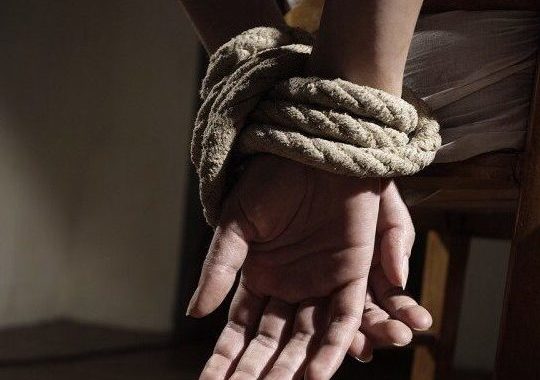Uganda minister’s killing sparks talk on security agents’ welfare

Col Charles Okello Engola, the State Minister for Labour, Employment and Industrial Relations was on Tuesday morning felled by a man assigned to protect him.
Private Wilson Sabiiti would then kill himself moments after he shot dead the minister at his home in Kyanja, a Kampala suburb as the minister prepared to set off for a Cabinet meeting at State House in Entebbe.
Yet, even as there won’t be a case on the killing, it sparked a debate on just how settled or frustrated are security details of VIPs in the country.
President Yoweri Museveni, has over time said remuneration for soldiers was not a priority in the army, but stabilising the country, acquiring weapons and peace. He recently encouraged the army to serve beyond self and attach little attention to pay and welfare, noting that past armies worked for almost nothing, but they succeeded in the struggle.
Get free education
He encouraged them to utilise the available income-generating activities like the formation of savings groups and enrolment of soldiers’ biological children in army schools to get free education.
Brig Gen Felix Kulayige, the Spokesperson of the Uganda People’s Defence Forces (UPDF) says no government would pay enough salary for soldiers. But the recent salary enhancement seems to have favoured only the higher ranks.
In the enhanced structure, Generals would move from Sh2m ($538) to 18.8m ($5,000), while the Local Defence Personnel pay will rise from Sh183,400 ($49) to shs850, 000 ($228) and Privates from Sh385,279 ($103) to Sh1.29m ($347).
Members of the Parliamentary Committee on Defence and Internal Affairs are concerned that some high-ranking officers receive up to over 100 percent increment while lower-ranking officers are still doing poorly, something they argue may pose a huge threat.
“What is worrying for me are the lower-ranking officers. They are not spared the inflation, let the discussion begin on their enhancement,” Abdullah Kiwanuka, a legislator on the committee said.
‘Not paid for months’
Despite the military saying salaries are paid on time; Sabiiti reportedly told colleagues days before the murder-suicide that he had not been paid for months.
In March, the General Court Martial in Kampala jailed two soldiers after they were found guilty of spreading harmful propaganda in a recorded video which they shared on social media and with mainstream news outlets.
In an earlier video, a soldier, Apollo Bigirwa, 41 vents his anger, pain, desperation, and curses at President Yoweri Museveni, who is also the Commander in Chief of the UPDF, after serving in the scorching Somalia heat for a year only to return home empty-handed, tired, worn out and broke.
His co-accused, Stuart Nuwahereza, 33, uploaded the video on social media platforms where it went viral.
Shooting rampage
A seemingly desperate Sabiiti, according to witnesses, went on a shooting rampage until he ended his own life using the same weapon with which he had killed his boss.
Witnesses say he told the people he met that he had problems with the government including delayed pay. He also accused the minister of mistreatment and failing to give him some money to help him sort out his financial challenges back home to cater for his pregnant wife.
Deputy UPDF Spokesperson Col Deo Akiiki denied reports that the bodyguard complained of non-payment of salary.
But it only exposed the problem. According to the report, the soldiers were living in appalling conditions and needed more housing units as well as renovation of the existing barracks, with some Members of Parliament calling for consideration, not only for soldiers but their wives and children as well.
Suffering
“I have ever been at the hands of security and I have seen first-hand the suffering of these people. Let us look deeply into their issues and make their lives better.
“I have seen the uniport being constructed, they are not any better,” a legislator, Francis Mwijukye said.
As Police continue to investigate the motive of the killing, it has turned out that the killer soldier was struggling to make ends meet with his meager salary.
Sabiiti, 33, a senior two-school dropout, who joined the army in 2007 after failing to raise school fees for his education, had taken on the responsibility of looking after the wider family, especially after his father passed on in 2016.
Sabiiti, described as the darling of his village in Kabarole, western Uganda, whose two wives left him with two children each, was also paying school fees for his sister, his four children, and other children of his relatives.
His sister says he called him a day before he ended his life and wanted sh20,000 ($5) from his mother for food, saying his pay had been delayed and he was struggling to get what to eat.
He had also told his relatives that he would no longer be able to pay school fees because he could no longer afford the money.
Former army chief and current state minister for internal affairs Gen David Muhoozi says the government pays fees for soldiers’ children in primary school only and is planning to cover even higher levels of learning when the economy allows.
Source: theeastafrican.co.ke





